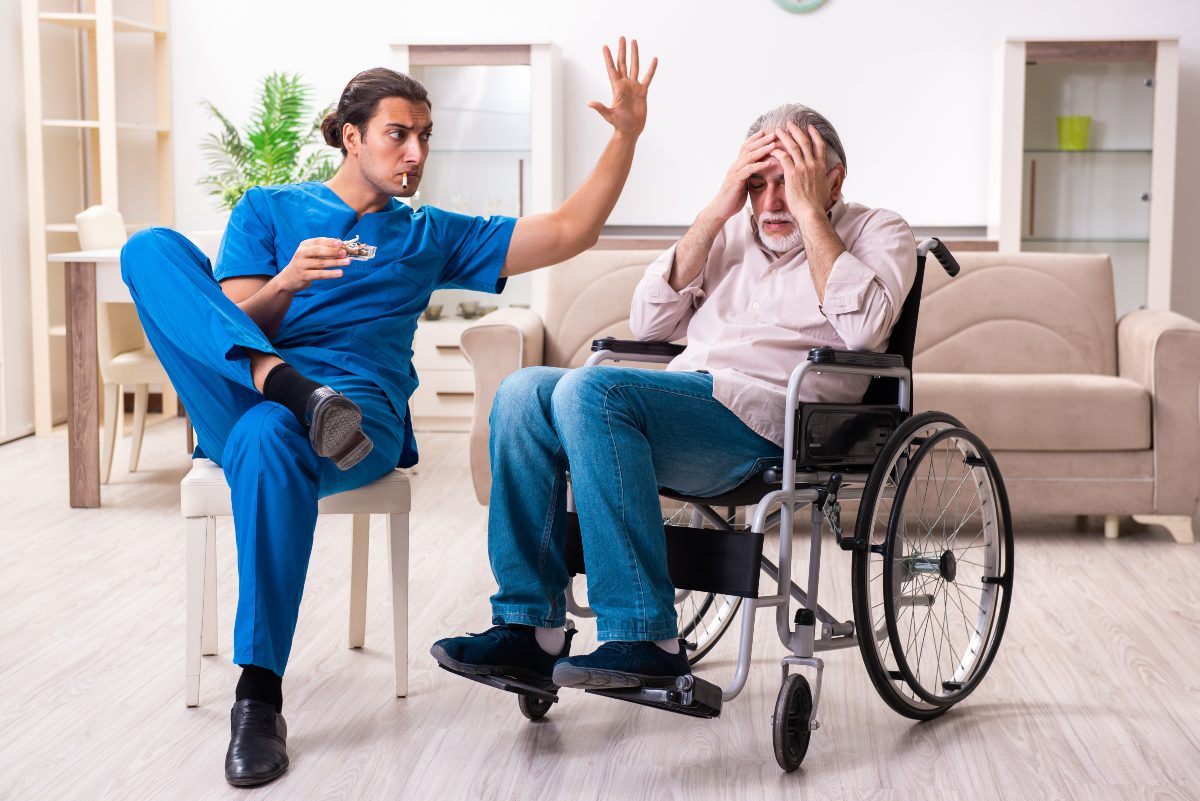
If you suspect that your family member is being mistreated in their nursing home, it’s important to broach the subject with them. Doing so isn’t always easy, and you may not get a straight answer right away. Nevertheless, discovering whether your loved one is facing abuse or neglect is important and could prevent future trauma. Here’s what you need to know about determining whether or not you need an NYC nursing home abuse lawyer.
What to Say to Your Loved One If You Suspect Abuse
If you suspect your elderly loved one has experienced nursing home abuse, try bringing up the issue with them. If you’re able to visit your loved one in person, try to take them to a quiet and confidential area of their care facility. Residents may be afraid to bring up issues if they think others will overhear. Likewise, be direct and specific when bringing up your concerns. Tell your loved one about what makes you worried. Whether it’s signs of physical abuse, worsening health, malnutrition, or poor hygiene, make sure they know you’re aware and worried.
Note, however, that it may be difficult to get any solid answers from them as they may have been intimidated into silence by their caretaker. Likewise, they may be unaware that they’re being abused. Asking the following questions, gently and slowly, may help bring about discussions as to what they’re experiencing in their nursing home:
- Are you being given food and baths regularly?
- Are you participating in activities with other residents?
- Do you ever feel threatened or intimidated by your caretaker?
- Is there a caretaker in particular who’s been bothering you?
- Is there anything you want to mention to me that you feel you can’t bring up with anyone who works here?
Based on their answers, try to discuss solutions to the problem. This could involve moving your loved one to a new nursing home or bringing up the issue with management or facility directors. If your relative is still unresponsive to these questions or if you ultimately decide that there’s a good chance they’ve been the subject of abuse, contact a credible nursing home abuse lawyer as soon as possible.
At Dalli & Marino, our legal team can help you hold the negligent party accountable for their actions. We know nursing home abuse and neglect can have devastating effects on you and your loved ones, and we want to help you obtain justice.
How Can You Tell If Your Loved One Is Being Abused?
Sometimes it can be hard to tell if a loved one is being abused. Generally, if there are sudden changes to their behavior and disposition or conflict between your loved one and their caregiver, you should keep an eye out for further signs of abuse. Here are a few to keep in mind:
- If your loved one is failing to take their medications properly, has unexplained injuries, or shows signs of physical restraint, they may be physically abused.
- If you observe controlling conduct on the part of the caregiver or unusual behavior in your loved one, including symptoms of dementia, there may be emotional or psychological abuse occurring.
- Stained underwear, vaginal or anal bleeding, bruising near the genitals, or unexplained STDs may be signs of sexual abuse.
- If you notice any unexplained changes to your loved one’s bank account, a sudden alteration to a life insurance policy or will, or missing cash from an elderly resident’s room, they may be facing some form of financial abuse.
- Neglect can manifest in a number of ways, including leaving your loved one alone in a public place, not bathing them, leaving them inappropriately dressed for the weather, and providing them with unsafe living conditions such as a lack of heat or running water.
If a caregiver refuses to let you be alone with your loved one, you’re right to be suspicious.
If you notice any of these signs or are apprehensive at all, contact an experienced nursing home abuse lawyer today.
Call an Expert Nursing Home Abuse Lawyer in New York City
We understand how stressful it can be to watch your loved ones face any form of trauma, pain, or distress. If you believe that a member of your family is caught up in a harmful or neglectful situation, contact the trusted attorneys at Dalli & Marino.
We’re a group of successful nursing home abuse lawyers whose verdicts and settlements have recovered millions of dollars for our clients since 1996. Our team of highly skilled trial attorneys approaches each case on an individual basis and are dedicated to helping you recover the money you deserve to compensate you for your loss. Give us a call at (888) 465-8790 or complete our contact form today.


